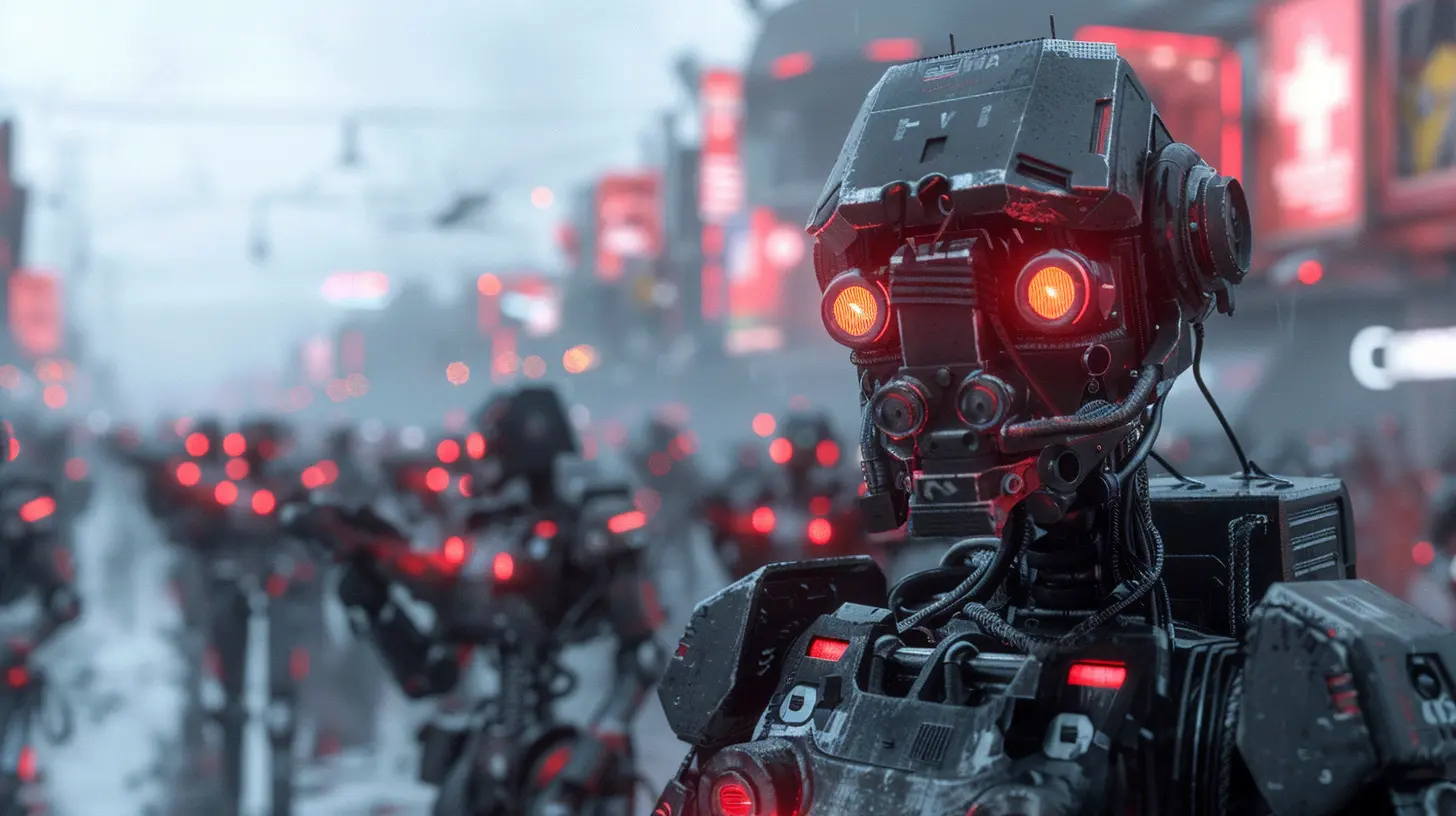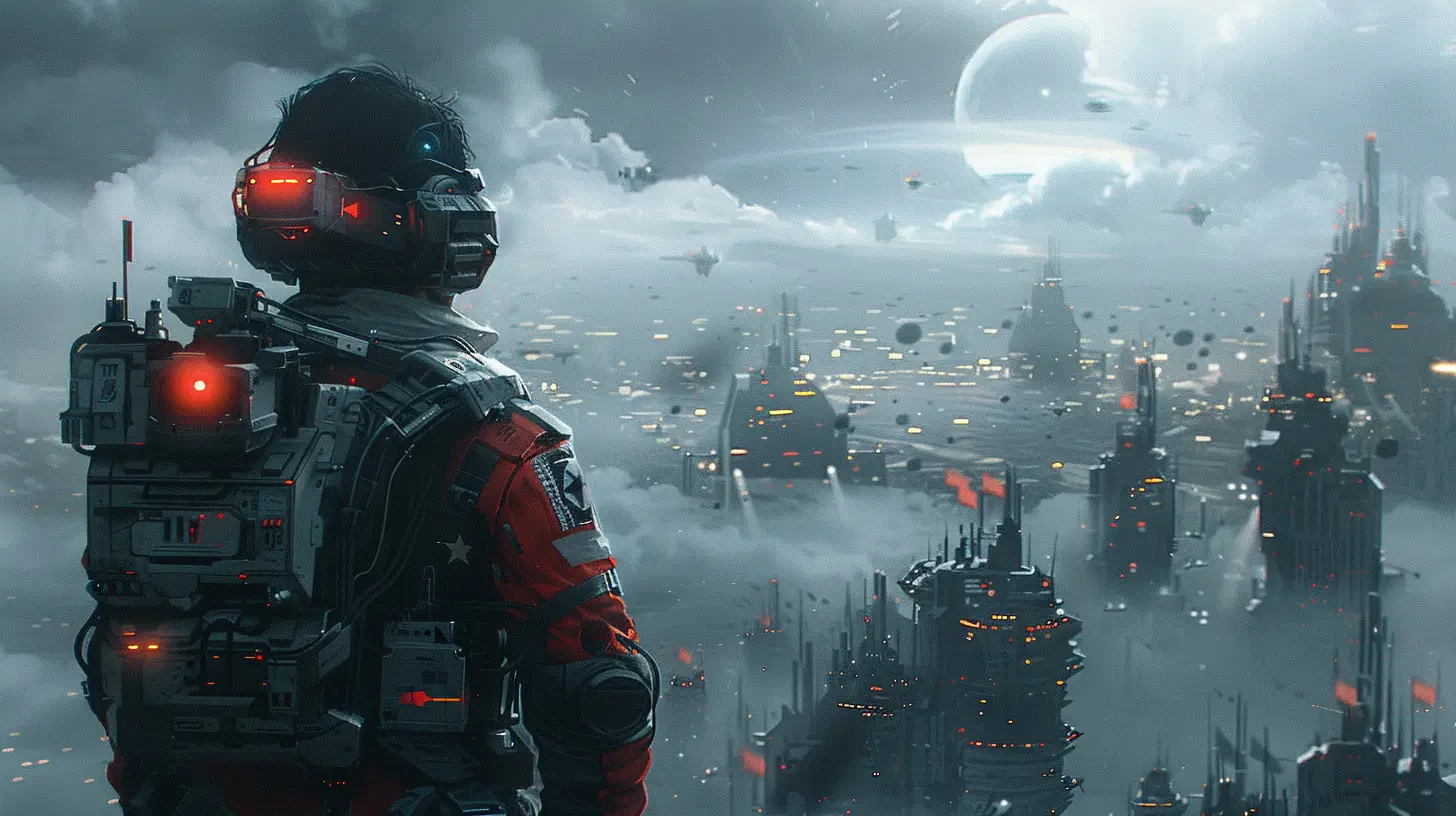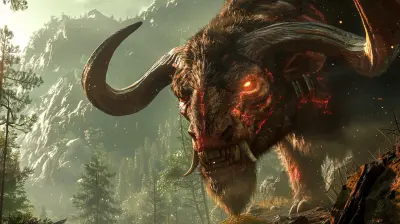AI Commanders: Friend or Foe in The Latest War Games?
30 October 2025
The battlefield is evolving, and it’s not just about epic explosions, coordinated strikes, or outmaneuvering your opponents anymore. The age of Artificial Intelligence (AI) in gaming has officially arrived, and with it comes a new layer of strategy that’s shaking up the foundations of war games. But here's the big question: are these AI Commanders the allies we didn't know we needed, or are they secretly the nemesis we never saw coming? Let’s dive in and break this down.
The Rise of AI in War Games
AI in video games isn't exactly a new phenomenon. From NPCs (non-playable characters) that follow basic scripts in old-school RPGs to the advanced pathfinding systems in modern shooters, we’ve seen machine intelligence evolve steadily over the years. But what’s different now?We’ve reached a point where AI isn’t just the background NPC bot you mow down without thinking. Now, AI acts like a commander—strategizing, adapting, and even outsmarting players in real-time. These advanced algorithms can micromanage armies, set up ambushes, and even predict player behavior. And let me tell you, it's both thrilling and a little unnerving.
But let’s not hit the panic button just yet. War games like Company of Heroes 3, Total War: Warhammer, and even larger-scale MMO simulations are incorporating these AI systems to elevate gameplay. It’s no longer about mindless engagement; it’s about matching wits with a digital opponent that actually learns from you. Cool, right? Or maybe, kind of terrifying?
The Pros: Why AI Commanders Might Be Our Friends
Let’s look on the bright side for a moment. There are some very real benefits to having AI commanders in war games. It’s not all doom and gloom—far from it.1. Smarter, More Dynamic Opponents
Nobody wants to play against a dumb AI. Remember the old days when you could just bait enemies into the same trap over and over again? Yeah, those days are fading fast. Today’s AI commanders don’t make the same mistakes twice. They adapt to your tactics, forcing you to stay sharp and constantly switch up your strategy. Playing against an AI that evolves? That’s a whole new level of fun and frustration (in the best way possible).2. Leveling the Playing Field
AI Commanders can fill in gaps where human players might fall short. Say you’re on a team-based game, and one of your teammates bails or lags out. A good AI commander can step in seamlessly and ensure your forces don’t crumble. It’s like having a backup quarterback popping in to save the game.3. Balancing Complexity
War games are getting insanely complex—units, resources, terrain. Honestly, it can feel like you need to be a part-time mathematician just to keep up. AI commanders can help manage those overwhelming layers of complexity without taking away the player’s sense of control. Think of it as having a helpful assistant—not someone who steals the spotlight but someone who handles the grunt work.4. Perfect Training Partners
Let’s face it—getting owned by other players online can be demoralizing. AI commanders make excellent sparring partners for those "training arc" moments when you want to hone your skills. They’ll push you to your limits but won’t BM (bad manner) you in the post-game chat. That’s a win in my book.
The Cons: Why AI Commanders Could Be a Foe
Okay, now let’s look at the darker side of the equation because, as with all tech advancements, there are some potential pitfalls that can’t be ignored.1. Too Smart for Their Own Good
An AI commander that adapts and predicts player behavior might sound cool, but what happens when it becomes too good? There’s a fine line between a challenging opponent and one that feels downright unfair. If you’re constantly getting steamrolled by an AI that predicts your every move, it starts to feel less like a game and more like a Terminator prequel.2. Losing the Human Element
War games, at their core, are about the human element. The thrill of outsmarting—or getting outsmarted by—a real human opponent is hard to replicate. Sure, AI can mimic human decision-making, but it’s still just algorithms at the end of the day. Some players might feel that competing against AI commanders dilutes the emotional depth and unpredictability that come with facing off against other players.3. Pay-to-Win with AI
Here’s the capitalist elephant in the room: AI systems like these aren’t always free. Some titles might lock these next-gen AI commanders behind paywalls or reserve them for premium players. Imagine an uneven battlefield where one side has a hyper-smart AI commander while the other side is stuck with basic bots. Yeah, nobody wants that.4. Ethical Concerns
It’s worth pausing to think about where this all leads. If AI commanders can outthink and outplay human players, at what point do we stop being the protagonists of our own games? Are we just setting the stage for machines to “play for us”?
AI Commanders vs. Human Commanders: Who Wins?
Alright, so it’s time for the ultimate showdown: AI commanders versus human commanders. Who comes out on top?This is the beauty of modern war games—it’s entirely situational. An AI excels at micromanagement, crunching numbers, and multitasking in ways humans just can’t match. They see patterns in the chaos. But humans? We’re crafty. We’re emotional, unpredictable, and irrational in ways that even the smartest AIs struggle to emulate.
If it’s a pure war of attrition, AI probably wins. But if you throw in unconventional tactics—like sacrificing pawns for psychological warfare or full-on YOLO strategies—human players can still clutch the victory. It’s like the classic chess battle between Garry Kasparov and Deep Blue; AI might have won the battle, but humans haven’t lost the war.
Finding the Balance
So, where does that leave us? Balance is key when incorporating AI commanders into war games. The ideal scenario is one where both AI and humans can coexist on the battlefield, each bringing their own strengths to the table.Developers need to ensure that AI commanders are challenging but not oppressive, fair but not boring. More importantly, they need to give players the choice to engage with AI at their own comfort level. Want to face off against the ultimate digital strategist? Great. Prefer the unpredictability of human players? That should always be an option, too.
The Future of AI in War Games
Looking ahead, the potential for AI in war games is staggering. Imagine a future where AI commanders not only adapt to your playstyle but also develop their own unique personalities. Maybe one AI is a cold, calculated tactician, while another is more reckless and aggressive. Wouldn’t that add a whole new layer of immersion?It’s also possible that AI could act as co-commanders, working alongside human players to create a true hybrid strategy experience. Picture this: you handle the big-picture strategy, while your AI counterpart focuses on minute details like supply lines or troop movements. It’d be like having a super-intelligent teammate who always has your back.
But let’s not forget—it’s a slippery slope. The more control we hand over to AI, the further we move away from the heart and soul of what makes war games special: us. It’s a fine line to walk, and only time will tell how far we’re willing to go.
Final Thoughts
AI commanders are changing the game—literally. Whether they're your best friend or a thorn in your side depends largely on how they’re implemented and how you choose to interact with them. For now, they add an exciting new dimension to war games, but we’d be foolish to ignore the potential downsides. One thing's for sure, though: love them or hate them, AI commanders are here to stay. So, are they friend or foe? In the end, that might be up to us to decide.all images in this post were generated using AI tools
Category:
War GamesAuthor:

Leif Coleman
Discussion
rate this article
1 comments
Gideon Hahn
AI commanders can enhance strategy and immersion in war games, but balancing their influence is crucial; they should complement, not overshadow, player creativity and decision-making.
November 5, 2025 at 4:31 AM

Leif Coleman
I completely agree—AI commanders should enhance player experiences by complementing creativity and decision-making, not replacing them. Striking that balance is essential for a truly immersive gameplay experience.


